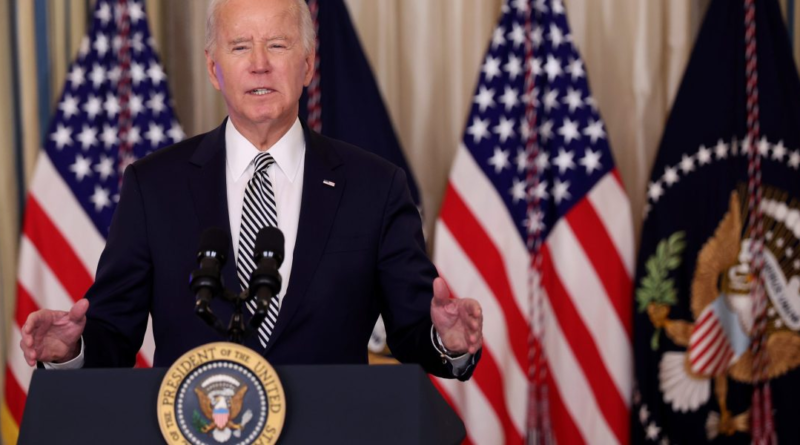Bipartisan tax deal could lift 400,000 kids out of poverty—and give Biden a win in an election year
A new tax package is winding its way through the House, with some Democrats and Republicans coming to something of a surprise agreement at the start of the election year for a legislative body that’s been less than functional. And if passed, the deal could help to fulfill one of President Joe Biden’s long-time policy goals, albeit not to the extent he’s promoted.
Appealing to Democrats, the Child Tax Credit would be expanded to more low-income families, and Republicans would get to revive three expired tax breaks for businesses.
With a $78 billion total price tag, the package would expand the CTC through tax year 2025 for an estimated $33 billion. The CTC itself has had a tumultuous past few years, and if the current legislation passes it would be a victory for Democrats.
The CTC was expanded significantly under Biden in the 2021 American Rescue Plan, which led to a “historic” reduction in child poverty in the U.S., but the popular measure expired at the end of that year. Then, those gains were reversed, and child poverty soared, more than doubling from 4 million in 2021 to 9 million in 2022, according to the Census Bureau: The poorest families, which qualified for $3,600 per-child payments under the expanded credit, got $0 when it expired. But making the CTC more generous once again is one of the president’s pet issues; Biden has taken other stabs at expanding it since he’s been in office.
The new legislation isn’t as generous as 2021’s, but it would make a number of complicated changes to the CTC that would increase the credit amount for about 16 million children, according to the Center on Budget and Policy Priorities. One of the biggest changes: It would increase the maximum credit per child from $1,600 to $2,000 by 2025. It would also change the “phase-in” rate so less income is needed to receive the full benefit, and allow for a “lookback” period during which someone could use income from a previous year to qualify for a higher credit.
Doing so could lift around 400,000 kids out of poverty in the first year, per the CBPP’s calculations, and 500,000 by 2025. It would also bring millions more closer to the poverty line. One example CBPP provides of how much more generous the expanded credit could be: A parent earning $15,000 per year with two children would see an increase from $1,875 to $3,600. The Tax Policy Center estimates the average benefitting family would see a tax cut of $680 for 2023, with the majority of benefits going to families earning $20,000 to $40,000 a year.
In exchange, three expired business tax breaks would be reinstated, also costing around $33 billion. These benefits are related to expensing research and experimentation costs and providing more generous deductions for interest expenses, among others.
The package was approved by the House Ways and Means Committee last week, spearheaded by Ron Wyden, the Democratic chair of the Senate Finance Committee, and Jason Smith, the Republican chair of the House Ways and Means Committee.
‘Child poverty is a problem’
Though the package has bipartisan support, not every lawmaker and advocate is pleased. Democrats and some progressive groups say the changes to the CTC do not go far enough. For example, the credit would still require parents to have a certain level of income before qualifying, meaning the poorest in the country still would not.
The income threshold has long been a sticking point between the two parties. Under the 2021 expansion, households did not need to have income to receive the benefit; that helped lift around 3 million kids out of poverty, far more than this new plan is projected to. But Republicans won’t support an expansion without the income limits; currently, parents need to earn at least $2,500 a year to qualify, and then gradually receive a larger credit as their income increases.
The consensus among liberals seems to be that the package is better than nothing. Rep. Suzan DelBene, D-Wash., a member of the Ways and Means Committee, called the bill “imperfect” and said the CTC provision did not go far enough, but still supported it.
“Child poverty is a problem. Corporations paying too much in taxes is not,” Steve Wamhoff, federal policy director of the left-leaning Institute on Taxation and Economic Policy, said in a statement. “Unfortunately, many members of Congress have refused to direct resources to help children in poverty unless an equal amount of resources is simultaneously directed towards corporate tax cuts.”
The bill, which could be implemented this tax season, would be paid for by ending the Employee Retention Credit, a tax break for businesses that was implemented during the COVID-19 pandemic. It is unclear how receptive the Senate will be to the proposal.




